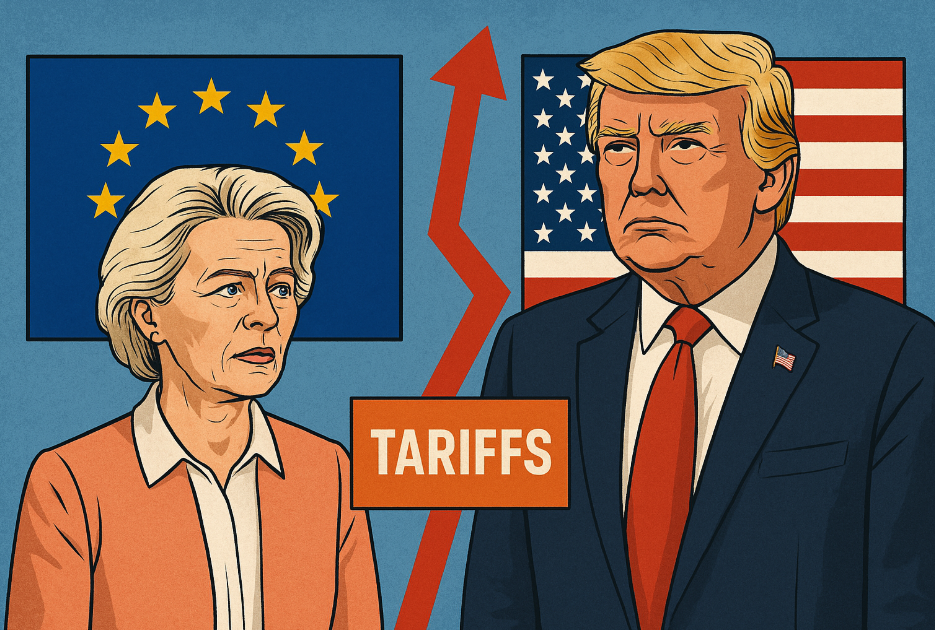
Europe did not start tariff confrontation: von der Leyen
The European Union said Tuesday it has a “strong plan” to retaliate against US tariffs, but it intends to calibrate its response to 2 April’s announcement seeking a “negotiated solution.”
“We have the strength to negotiate. We have the power to push back. And the people of Europe should know: Together, we will always promote and defend our interests and values. And we will always stand up for Europe,” Ursula von der Leyen, president of the European Commission, told the European Parliament.
The EU imports into the US are facing a 25% tariff on steel, aluminium, cars and car parts. Von der Leyen says the next sectors facing tariffs will be semiconductors, pharmaceuticals and timber, alongside the so-called reciprocal tariffs that are expected tomorrow. These will immediately apply to almost all goods and many countries in the world.
While recognising the “severe issues” in global trade highlighted by the US administration – such as overcapacities, imbalances, unfair subsidies, denial for market access and intellectual property theft – von der Leyen says the EU suffers from it too. She suggests the US and the EU should work on it together, as “tariffs across the board make things worse, not better.”
“Europe did not start the tariff confrontation, but we have everything we need to protect our people and our prosperity,” von der Leyen writes on LinkedIn. “We have the strength to negotiate. We will diversify our trade and deepen global partnerships. And we will work to remove the remaining Single Market barriers.”
Brussels says it’s open to negotiations, but will leverage its readiness to take “firm” countermeasures. “Europe holds a lot of cards, from trade to technology to the size of our market… All instruments are on the table,” adds von der Leyen.
Another move in its strategy is to diversify trade with other partners, highlighting reliability and predictability as key advantages, in addition to the EU being the “biggest market in the world.” Lastly, the EU will also work to strengthen its single market, removing barriers to scale-up, Kallanish notes.
The official warns that tariffs will cost jobs and create a “bureaucratic monster” of new customs procedures. “Today, nobody needs that – neither in the US nor in Europe,” she concludes.
Last week, US President Donald Trump warned the EU against working with Canada to “harm the US economy,” saying that would trigger “large-scale” tariffs to the two involved parties.
Over the weekend, UK Prime Minister Keir Starmer held a call with Trump to negotiate a “UK-US economic prosperity deal,” fuelling speculation that the UK could potentially reverse some tariffs. The UK government has not ruled out retaliation moves.


Truly global, user-friendly coverage of the steel and related markets and industry that delivers the essential information quickly while delivering on most occasions just the right amount of between-the-lines comment and interpretation for a near real time news service of this kind.
Anonymous
Very good overview of the weekly steel market.
Anonymous